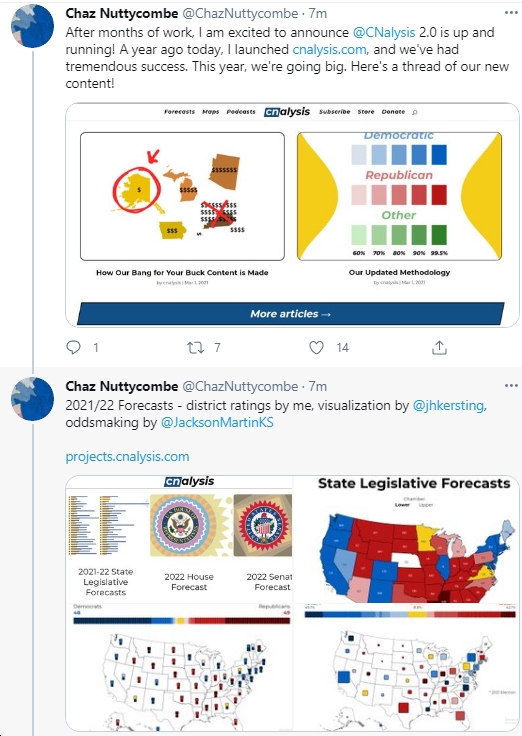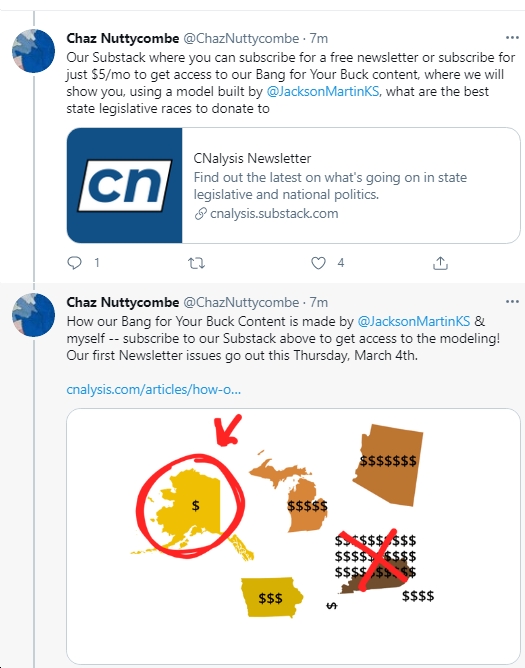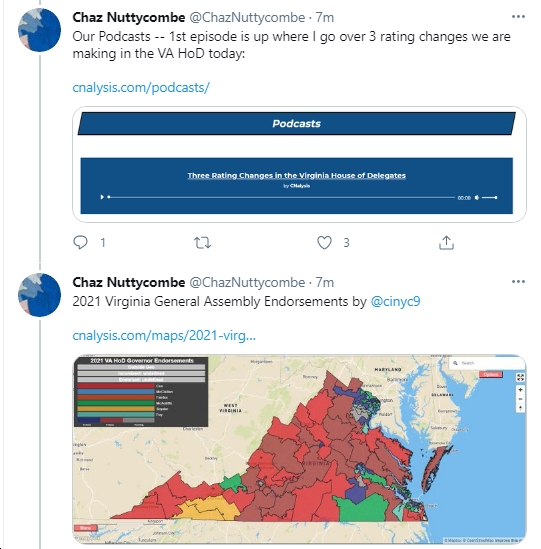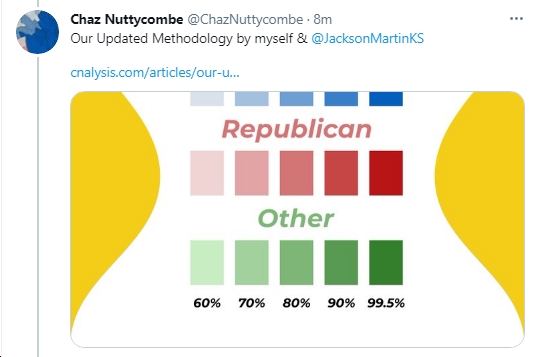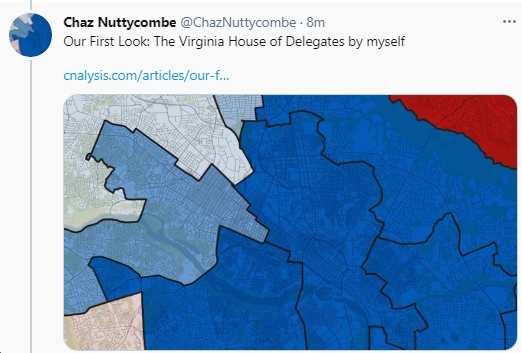The calendar has now flipped to March, with the first full month of Joe Biden’s presidency in the books, and with the Virginia General Assembly having finished its (excellent) work. Which means, of course, that it’s now time to *really* start focusing on the 2021 Virginia statewide and House of Delegates elections! So it’s great timing for Chaz Nuttycombe’s rollout of version 2.0 of his cnalysis.com website. See below for some highlights, including:
- The new cnalysis.com has updated methodology (among other things, it weights polling LESS, campaign finance LESS, electoral trends/demographics MORE); the “Bang for the Buck” tool; endorsements; and a first look at the the Virginia House of Delegates. According to Chaz, the modeling combines quantitative and qualitative factors, sort of a FiveThirtyEight.com/Sabato’s Crystall Ball hybrid, as Chaz puts it.
- The “Bang for the Buck” sounds intriguing. According to Chaz, “It uses a few input values to determine which seats are the best places to spend your money. The primary variables are the rating of the district, amount of money already raised, and the previous margin (as well as how close to the previous tipping point a district was.” So check it out!
- As for the Virginia House of Delegates, Chaz writes: “Currently, the chamber is a pure Toss-Up. Democrats have more room to grow in our forecast though, thanks to the Virginia Democratic Party being far more competent at candidate recruitment and raising money than the Virginia GOP.” (Note: I asked several plugged-in Virginia Dems this morning what they thought, and they mostly see Democrats holding their own or even gaining seats – although one did point to the 2009 disaster as something that COULD happen and HAS happened, if Democrats don’t show up in large numbers this November. Personally, if I had to take a stab at it right now, I’d say that the House of Delegates will remain about the same in terms of its partisan makeup, plus or minus a few seats.)
- A few districts to keep an eye on, in Chaz’s view, are: HD75 (“in Southside, a rural area trending Republican due to the area becoming increasingly white”); HD83 (“in Virginia Beach, where Democrats ousted then-incumbent Republican Chris Stolle by just 41 votes while a deeply unpopular Republican President sat in the White House”); “Districts 10, 28, 73 and 85, which are Democrat-held seats won by 3-5%, start as Toss-Ups”; “Districts 12, 31, 50, 51, 63 and 72 start out as races slightly favoring the Democrats, in the Tilt D rating”; “Districts 21, 27, 66, 40, 91 and 93 are Lean seats that will not decide the majority, but will very likely be single-digit races regardless, should they all be contested by major parties”; “In the outer rims of competitiveness are districts 2, 13, 81, 84 and 88, all sitting in the Likely columns.”
Anyway, whether you agree with each rating or not, and whether you’re pessimistic or optimistic about Democrats’ chances this November, I’d strongly recommend that you check out cnalysis.com‘s Virginia analysis, given that a HUGE amount of thought, effort and modeling went into it. Of course, as someone who used to work in modeling at the Energy Information Administration, I am very well aware that models are only as good as the data input, combined with the assumptions made about how trends will or won’t continue into the future. Get any of those wrong, and your forecast will almost certainly be wrong, unless of course you get lucky and are “right for the wrong reasons,” lol. So we’ll see, but thanks to Chaz et al. for providing us with a solid baseline and tools to kick off the 2021 Virginia House of Delegates elections!
